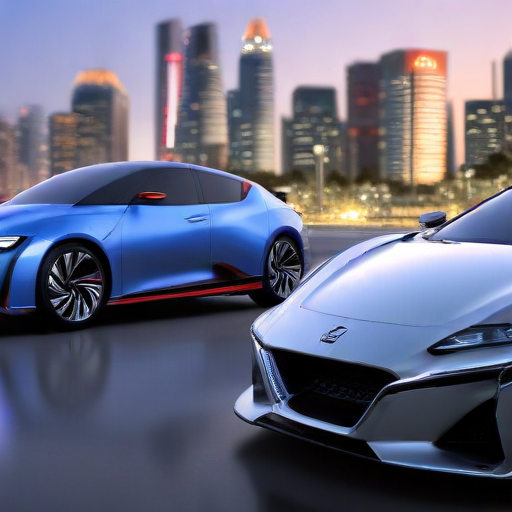Japanese automotive giants Nissan Motor Corp. and Honda Motor Co. have confirmed ongoing discussions aimed at enhancing their collaboration, but they refute claims of a planned merger. Following reports suggesting a potential merger that would create the world’s third-largest automaker group, Nissan’s stock surged by nearly 24% in Tokyo, while Honda’s shares experienced a decline of up to 3%. Trading of Nissan’s shares was temporarily suspended before resuming after both companies issued a statement clarifying that they are “considering various possibilities for future collaboration, but no decisions have been made.”
The automotive industry is currently in a state of flux, influenced by the growing presence of Chinese car manufacturers, which pose a significant challenge to U.S. and Japanese automakers. Companies like BYD, Great Wall, and Nio are capturing market share with their more affordable electric vehicles, exacerbating the challenges for established brands as they transition from internal combustion engines to electric models.
Recent agreements between Nissan, Honda, and Mitsubishi Motors have centered on sharing electric vehicle components and researching autonomous driving technologies, indicating a move towards greater cooperation amid industry changes. According to analysts, should a merger occur, it could create an automotive powerhouse valued around $55 billion.
The strategic alliance could provide Nissan with advantages that Honda lacks, such as experience in producing large SUVs and battery technology essential for developing the next generation of electric vehicles. Analysts suggest that combining resources could help both companies better compete against industry leaders like Toyota and Volkswagen.
As Nissan grapples with significant operational challenges, including a recent announcement to cut 9,000 jobs and reduce production capacity by 20%, the timing of these discussions may be crucial. The company has faced financial difficulties and a negative outlook from credit rating agencies, prompting an urgent need for strategic partnership to remain competitive.
While the future remains uncertain for both automakers, these discussions indicate a proactive approach to tackle both market pressures and evolving consumer demands, especially in the context of rising vehicle prices and shifts in consumer affordability. This collaboration could lead to a stronger presence in the electric vehicle market and ultimately benefit consumers with potentially more innovative and affordable car options in the future.
In summary, the potential for greater cooperation between Nissan and Honda amidst industry challenges could pave the way for a more resilient and competitive Japanese automotive sector, emphasizing the importance of adaptability in a rapidly changing market landscape.
